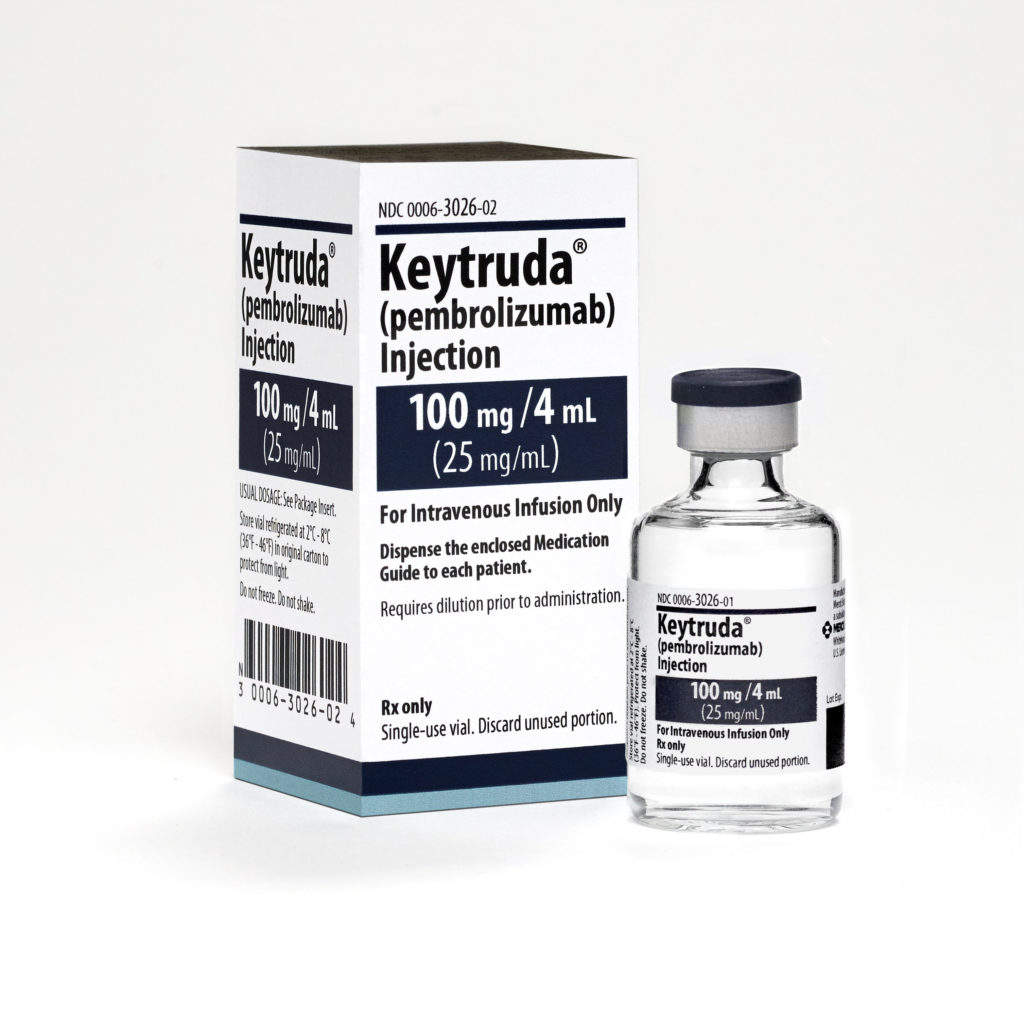Merck said that its anti-PD-1 therapy Keytruda has been granted priority review by the US Food and Drug Administration (FDA) in certain patients with high-risk, non-muscle invasive bladder cancer (NMIBC).

Image: Merck’s anti-PD-1 therapy Keytruda. (Credit: Merck Sharp & Dohme Corp.)
Subscribe to our email newsletter
The new supplemental Biologics License Application (sBLA) for Keytruda, which has been accepted by the FDA is for the treatment of patients having Bacillus Calmette-Guerin (BCG)-unresponsive, high-risk, non-muscle invasive bladder cancer (NMIBC). Through the application, Merck is seeking approval for the treatment of the condition in patients with carcinoma in-situ (CIS) irrespective of papillary tumors who are not eligible for or have decided not to have their bladder removed.
The sBLA for the anti-PD-1 therapy is based on the data from the phase 2 KEYNOTE-057 trial, which were presented first at the European Society for Medical Oncology 2018 Congress.
Merck expects a Prescription Drug User Fee Act (PDUFA), or target action date for the anti-PD-1 therapy for the new indication in January 2020.
Merck Research Laboratories chief medical officer and global clinical development senior vice president and head Roy Baynes said: “Merck is steadfast in its commitment to patients with bladder cancer, including advancing research to meet unmet medical needs.
“Patients with high-risk, non-muscle invasive bladder cancer sometimes make an informed decision to decline, or are medically ineligible for radical cystectomy, and there are currently limited non-surgical treatment options approved by the FDA for these patients who are BCG-unresponsive.
“We look forward to participating in the advisory committee meeting and to continuing to work with the FDA as they review this supplemental application for Keytruda.”
The anti-PD-1 therapy had been approved in the US, European Union, and in other countries for various indications. It has been designed to enhance the ability of the body’s immune system to help identify and fight tumour cells.
The humanised monoclonal antibody blocks the interaction between PD-1 and its ligands, PD-L1 and PD-L2 to help trigger T lymphocytes that may affect tumour cells and healthy cells.
Last month, the drug was approved to be used as monotherapy or in combination with platinum and 5-fluorouracil (5-FU) chemotherapy, for the first-line treatment of patients having metastatic or unresectable recurrent head and neck squamous cell carcinoma (HNSCC) whose tumors express PD-L1.
 Advertise With UsAdvertise on our extensive network of industry websites and newsletters.
Advertise With UsAdvertise on our extensive network of industry websites and newsletters.
 Get the PBR newsletterSign up to our free email to get all the latest PBR
news.
Get the PBR newsletterSign up to our free email to get all the latest PBR
news.

